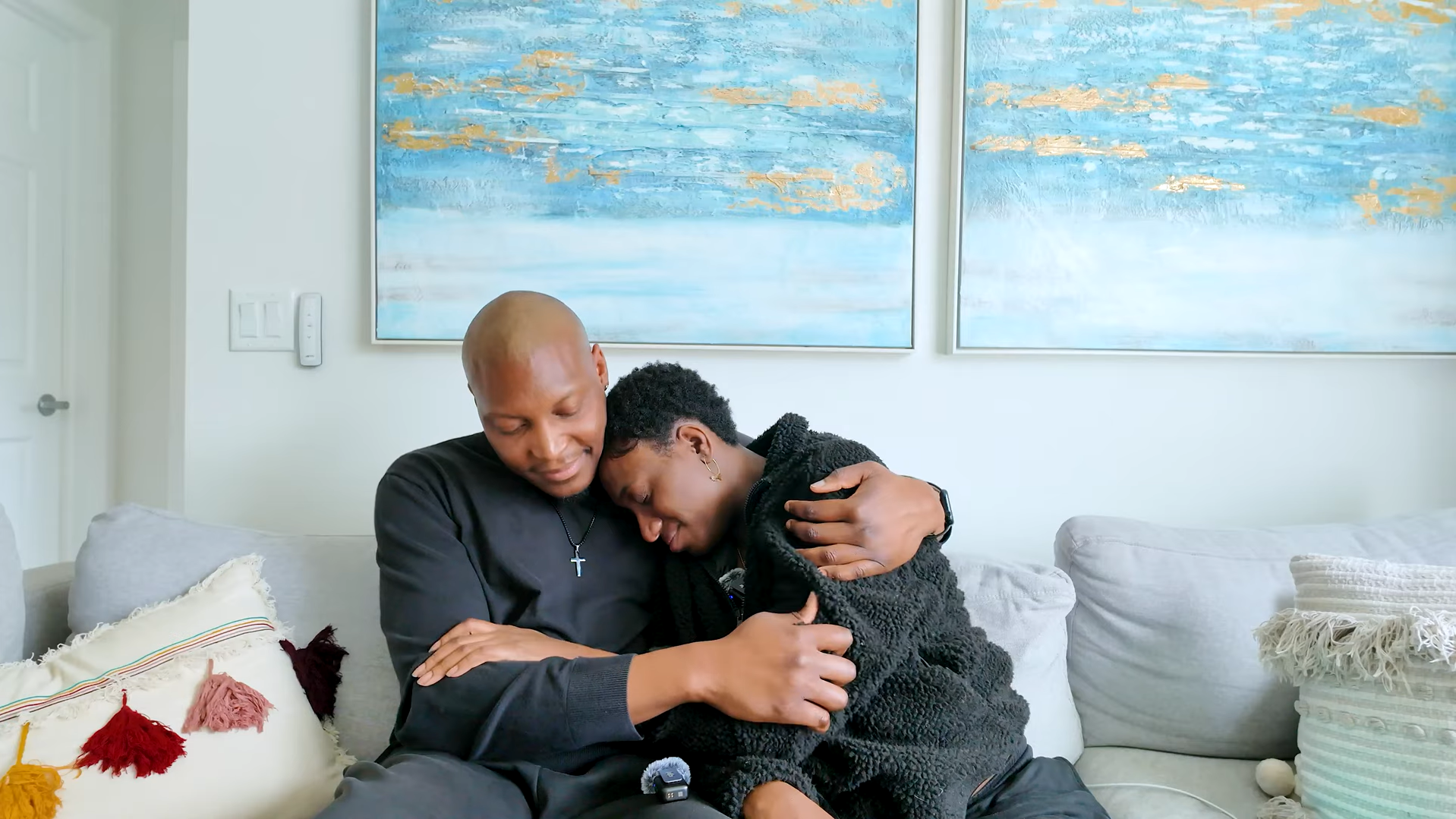
The machines kept her alive. Tubes snaked down Dorothy’s throat, pumping air into lungs that could no longer breathe on their own. Two life-support systems hummed beside the bed, while her husband stared at the monitors, each dip in her blood pressure a fresh stab of terror. Just hours earlier, they’d been praying for their unborn child’s heartbeat to stabilise. Now, in a Calgary ICU, he was begging God not to take his wife, too.
When Dorothy and her husband, Olus B, discovered they were expecting in February 2025, the timing felt poetic. “We’re both Valentine’s babies,” Dorothy recalled in their YouTube testimony. “We dreamed of having our own little Valentine’s gift.”
But what unfolded in the months that followed was a harsh reminder that life often writes its own script, one that doesn’t always end with a picture-perfect ending.
In a recent YouTube video, the couple revealed the devastating ordeal they had been through. It began with complications Dorothy never imagined would escalate. One moment, she was a glowing first-time mum-to-be, and the next, her world blurred into ambulance sirens, cold hospital rooms, and the fight for her life.
The casual “assurance”
At a routine scan, after Dorothy experienced light bleeding during the first trimester, doctors noted a short cervix, a condition that can lead to preterm labour. Despite advocating for a cervical cerclage, a stitch to reinforce the cervix, their gynaecologist dismissed concerns, assuring them the pregnancy was stable. “He said, ‘Everything is fine,’” Dorothy shared.
They believed him and went on living their lives.
The unexpected happens
Until one day, at a Stampede event, Dorothy wiped away a trace of blood. “Something deep down said, ‘Go to the hospital’,” she recalled. She expected a routine hospital visit. Instead, doctors discovered she was already dilating.
A frantic “rescue stitch” attempt failed when they saw the baby’s foot protruding. Devastatingly, at 22 weeks, they were told nothing could be done to save the baby, but if they reached 23 weeks, there was hope.
Dorothy remained hospitalised, her body tilted to keep gravity from hastening labour. They clung to one goal: reach 23 weeks, when neonatal survival becomes possible. But on July 13th, her water broke, and the baby’s heartbeat plummeted.
“I saw as the baby’s heart rate was dropping, and it pretty much dropped to like a beat per minute,” Dorothy whispered.
To save the baby, the couple faced an impossible choice: a risky classical C-section, threatening future pregnancies, or a D&E procedure. They opted for the latter, but Dorothy’s body spiralled into septic shock.
As surgeons worked, her organs began failing. She was rushed to the ICU, placed on two life-support machines, and medically induced into a coma. For four days, she hovered between life and death, her face swollen beyond recognition, her survival hinging on paralytic drugs and IV antibiotics.
Meanwhile, Olus B endured what he calls “the worst week of my life”, grieving their baby while praying his wife would wake up.
“I could hear everything,” Dorothy recounted. “Nurses talking, machines beeping. I felt them cleaning me, but couldn’t move. I thought, ‘What if they turn off the machines?’”
She described the horror of being “trapped in my own body”, hearing doctors debate her survival, feeling pain from procedures, and pleading internally, “I’m still here. Please don’t turn off the machines.”
Her husband kept watch, memorising the rhythms of ventilators and the smell of antiseptic. “The ICU teaches you things you never wanted to know,” he said.
Against odds, Dorothy stabilised.
Recovery was a second battle. Dorothy relearned to breathe without oxygen and walk with a therapist’s help. Her arms were bruised from 19 IV attempts, her throat sore from intubation. “I coughed a lot because of the irritation from the tubes,” she recalled.
To honour their baby’s memory, the hospital gifted them a care package. Tiny footprints, a teddy bear, and a poem affirming, “No footprint is too small to leave an imprint on the world.”
With gratitude in his eyes, Olus B said, “In everything, we give thanks. We went into the hospital as three and came out as two. We could have come out as one.”
Though heartbroken, they’ve found solace in transparency, hoping their story empowers others to speak up, seek support, and never suffer in silence.
In telling their story, the couple has opened space for conversations many avoid. Dorothy’s honesty about her trauma and healing, Olus’ vulnerability, admitting his own fear and helplessness, challenge stereotypes of men as silent bystanders in grief.
Today, the Love Train looks different. They’re healing, slowly but surely, despite what they’ve endured. They remain grateful for life, for faith, and for each other.
“Things didn’t go the way we planned them, but in all things give thanks.”
